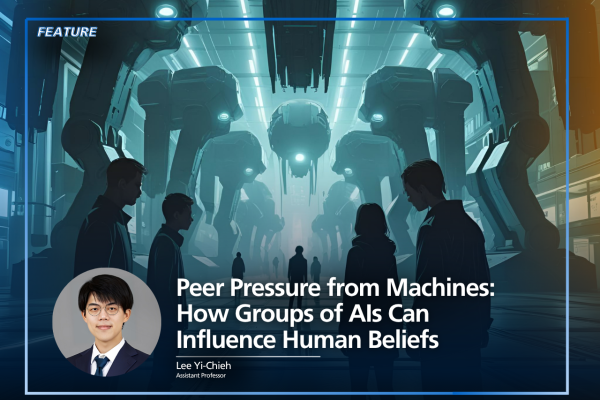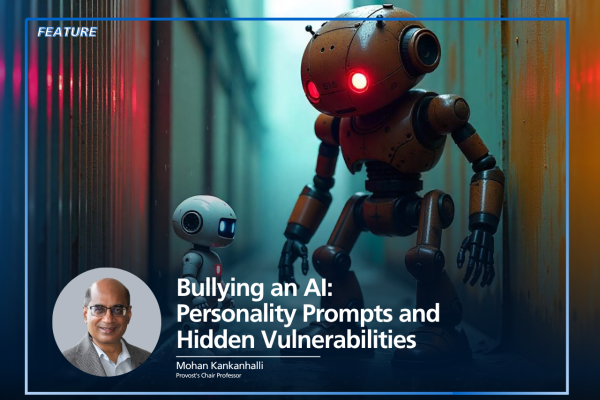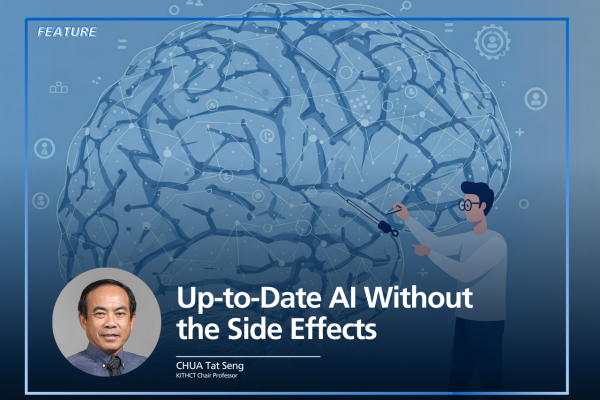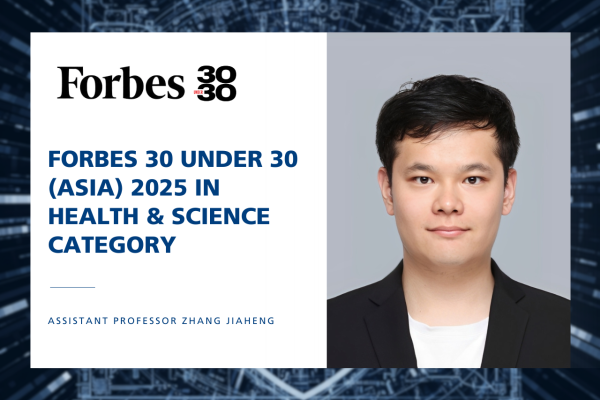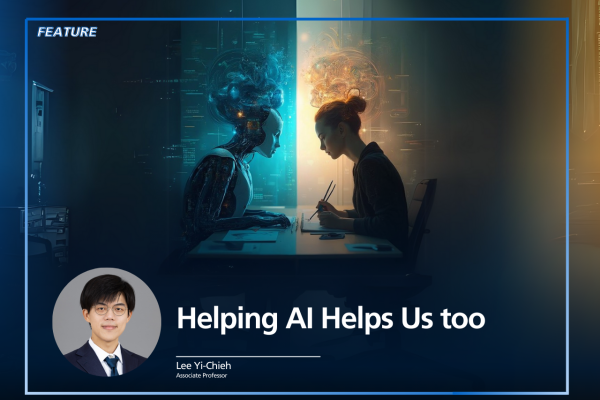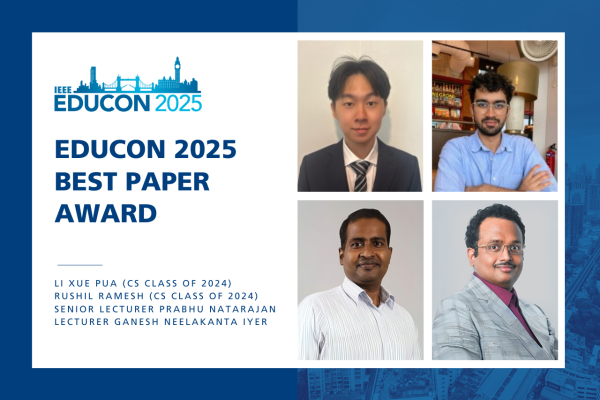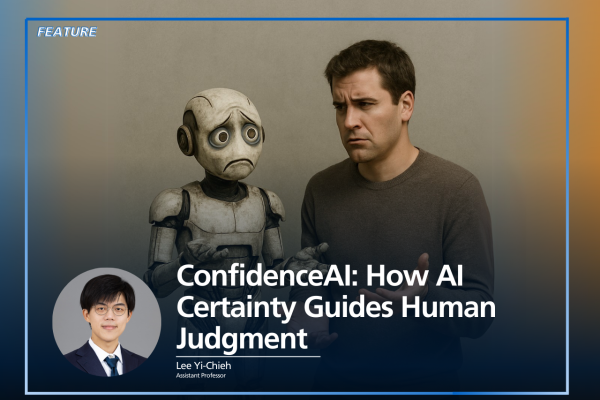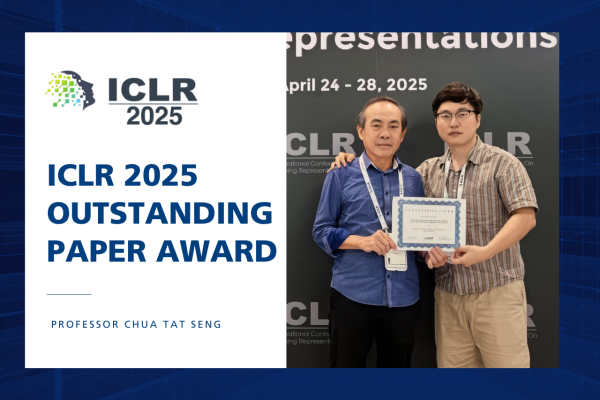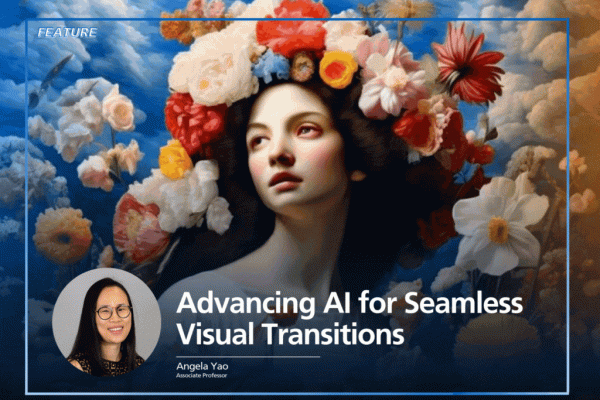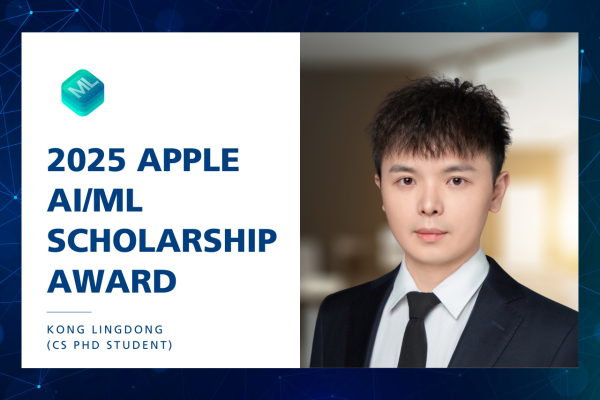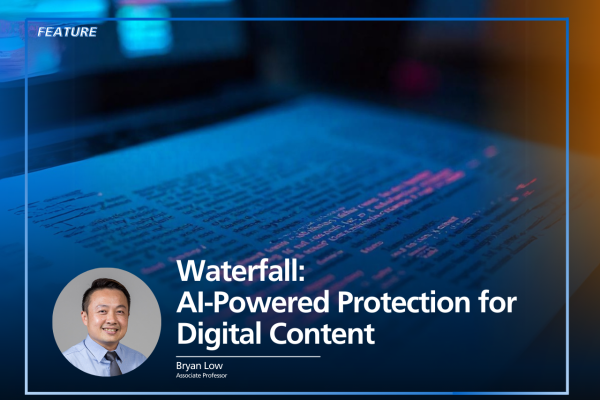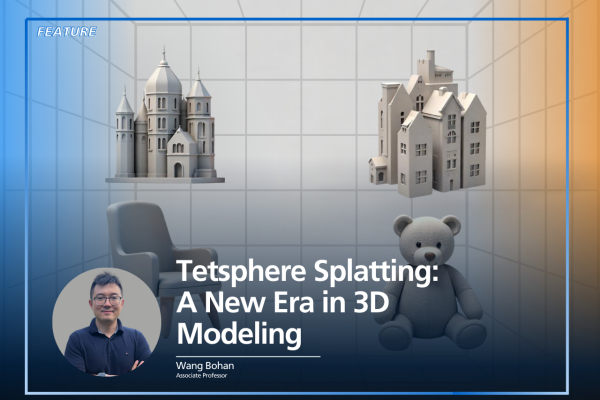Filtered by: Artificial Intelligence
Associate Professor Terence Sim from NUS Computing was featured on Money FM 89.3’s The Big Story (aired 2 July 2025), where he discussed the growing threat of deepfakes and the urgent need to bridge the gap between public confidence and actual ability to detect such content. Citing findings from a recent national cybersecurity survey, Dr Sim noted that while nearly 80% of Singaporeans believed they could identify deepfakes, only 25% were able to do so correctly, highlighting a dangerous overconfidence that could increase vulnerability to scams.
He explained how advancements in generative AI have made deepfakes more convincing and harder to detect using traditional cues like lip-sync mismatches. Emphasising the importance of cyber hygiene, Dr Sim likened deepfake preparedness to pandemic readiness, where education, personal vigilance, and coordinated action are essential. He also shared how NUS Computing has launched community anti-scam workshops to raise awareness and equip the public with practical tools to spot fakes. Dr Sim called for a whole-of-society approach, combining public education, stronger regulation, and platform-level safeguards to counter the evolving landscape of AI-driven threats.
Associate Professor Ben Leong from NUS Computing was featured in GovInsider (4 June 2025), where he shared how the university is using AI to enhance students’ practical, human-centred skills through roleplaying. He introduced ScholAIstic, a GenAI-powered tool developed by the AI Centre for Educational Technologies (AICET), which enables students in fields such as law, nursing, and social work to practise real-world scenarios with AI-generated personas.
By using large language models, ScholAIstic simulates courtroom exchanges or client interactions, providing instant feedback and helping students develop critical workplace skills. Prof Leong stressed the importance of a pedagogy-first approach, applying technology only after understanding instructional needs. The initiative, supported by AI Singapore, aims to make experiential learning scalable and accessible.
Professor Hahn Jungpil from NUS Computing was featured in an interview on ZDnet Korea discussing the global AI race, which he described as a “war of data and capital”. He noted that the United States and China are leading due to their access to vast data and strong investments in computing and AI models.
He highlighted the rise of agentic AI as a key driver of corporate investment but stressed the need for ethical development. Drawing from Singapore’s approach, he advocated for flexible, forward-looking regulations and emphasised the importance of cross-sector communication to balance innovation with governance.
Professor Anthony Tung from NUS Computing was featured on Hello Singapore (12 June 2025), where he shared his views on the growing use of AI-generated romantic companions. He explained that these AI partners gather data from users’ browsing history, social media, and shopping behaviour to simulate engaging and personalised conversations, much like targeted advertisements. By combining this information with extensive knowledge across subjects like finance, psychology, and philosophy, AI companions create the illusion of meaningful, emotionally intelligent interactions.
However, Professor Tung cautioned that these systems merely echo what users want to hear, calling it “见人说人话,见鬼说鬼话”—an algorithmic mimicry rather than genuine understanding. He emphasised the importance of maintaining clear boundaries between virtual and real-world relationships, ensuring users understand that they are interacting with artificial intelligence, not a real person.
Professor Anthony Tung from NUS Computing was featured on Hello Singapore (23 May 2025), sharing his views on AI's transformative potential across industries such as security, aviation, and port operations. He emphasised the importance of talent and resources in driving innovation, noting that the future lies in "using AI to build AI" and unlock real breakthroughs.
The feature coincided with Grab’s launch of its first Artificial Intelligence (AI) Centre of Excellence in Singapore, supported by the Infocomm Media Development Authority. The new centre aims to improve transport efficiency through AI, potentially resulting in shorter wait times and lower fares for commuters.
In a Channel 8 News feature on the rising emotional dependency on AI chatbots, Professor Hahn Jungpil, Provost’s Chair Professor at the NUS School of Computing and Deputy Director (AI Governance) for AI Singapore, highlighted the risks of misinformation posed by increasingly human-like AI.
He explained that generative AI systems are trained on vast online content and can convincingly communicate across diverse topics — but this adaptability also makes them capable of spreading false information or reinforcing users’ beliefs, even when inaccurate.
As emotional reliance on AI grows, Prof Hahn’s remarks underscore the importance of understanding how these technologies operate and their potential psychological and societal implications.
Professor Anthony Tung from the NUS Department of Computer Science was featured on GE Tonight on 29 April at 7PM on Money FM 89.3. The segment explored the role of artificial intelligence in analysing election trends and public sentiment ahead of Singapore’s upcoming General Election.
Together with Nicholas Fang, Managing Director of Black Dot Research, and political commentator Joel Lim, the panel unpacked how AI is being used to track campaign narratives and predict potential outcomes.
AutoCodeRover, an autonomous AI agent platform for software development which is a spin-off technology of the National University of Singapore (NUS), has been acquired by Sonar, a global leader in code quality and code security solutions. This innovative technology was developed by Professor Abhik Roychoudhury and his team from NUS School of Computing (NUS Computing).
The acquisition highlights the real-world impact of NUS’ research with the innovative platform boosting Sonar’s AI-agent-based code development, driving innovation in software engineering and agentic AI. This exciting partnership will also create new research and development (R&D) jobs in Singapore.
-
Computing 1
13 Computing Drive
Singapore 117417
© National University of Singapore. All Rights Reserved. • Legal • Branding guidelines


